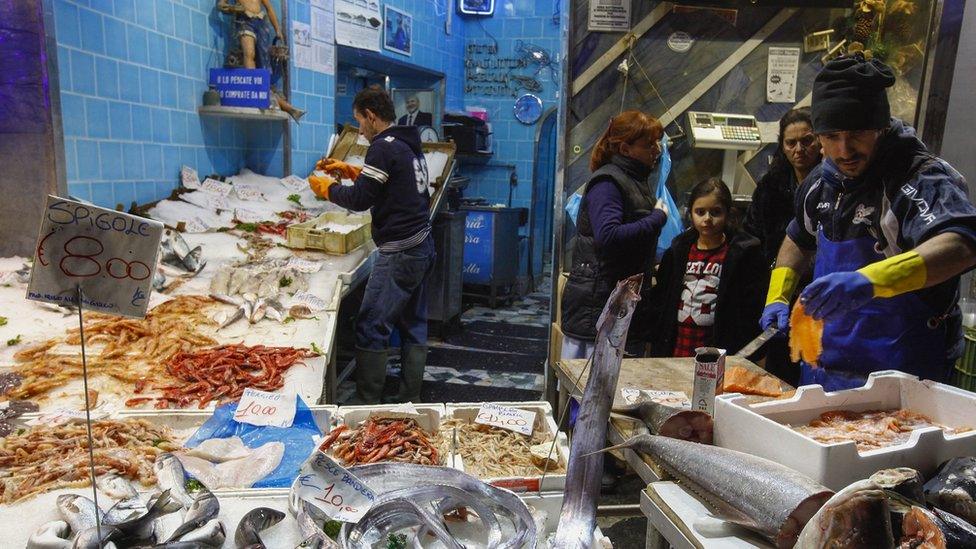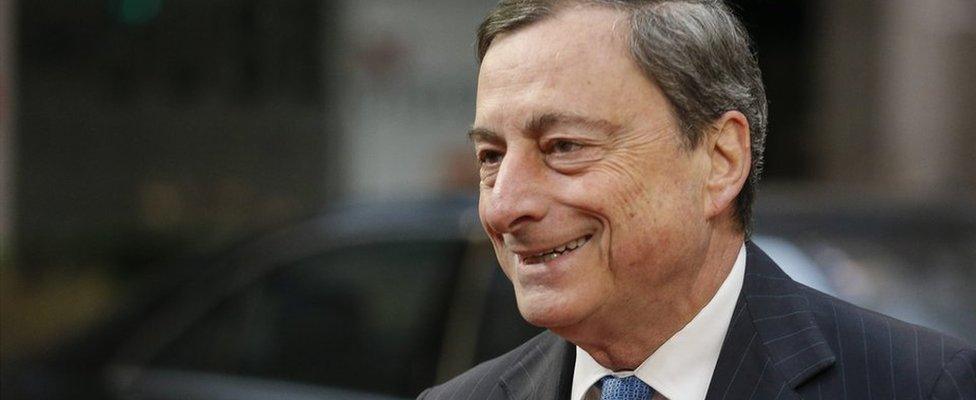Eurozone inflation slows in March
- Published

Inflation in the eurozone slowed dramatically in March, according to official estimates.
Eurostat said, external its initial estimate found inflation slowed to 1.5%, from 2.0% in February.
The European Central Bank targets inflation of close to, but below, 2%.
With inflation running close to that target, ECB chief Mario Draghi has been under pressure to wind-down efforts to stimulate the eurozone economy. But the latest report could ease that pressure.
According to Eurostat, the decline in inflation was partly due to lower oil prices, but food price inflation also eased.
"March's sharp slowdown in eurozone inflation was partly driven by temporary factors that will reverse in April, but the big picture is that inflation is now on a downward trend," said Jack Allen, eurozone economist at Capital Economics.
"There is little sign that declining unemployment is putting much upward pressure on wages and prices."

Rising inflation has put ECB chief Mario Draghi under pressure
The ECB has been attempting to stimulate the eurozone economy with negative interest rates and a bond-buying programme.
Economists say the easing of inflation pressures will allow the ECB to keep those stimulus measures in place.
"The ECB is likely to maintain its view that the economic recovery has not put inflation on course to meet its medium-term goal. So we expect it continue purchasing assets well into 2018, and leave interest rates on hold until even later," Mr Allen said.
Dennis de Jong, managing director at UFX.com, said: "The decline this month after a four-year-high last time may indicate inflation has hit its peak, although you can't rule anything in or out at the moment. Germany especially will be hoping Draghi can continue to keep it under control."
The data did not have a big impact on the euro, which was trading a little higher against the dollar at $1.0687.
A revision of the inflation data, based on more complete information, will be released on 19 April.